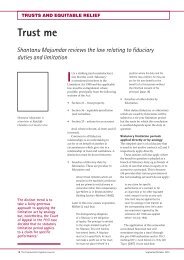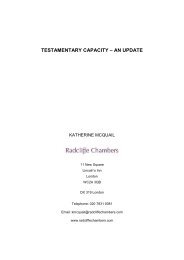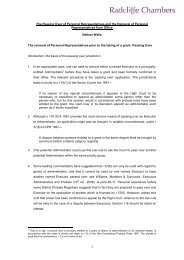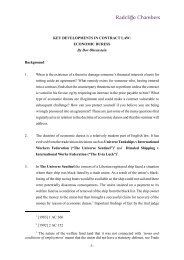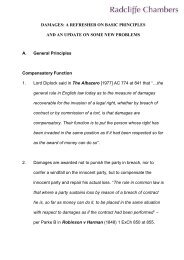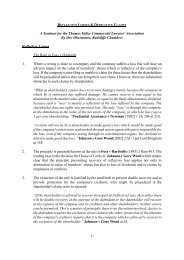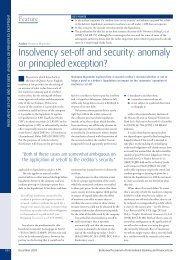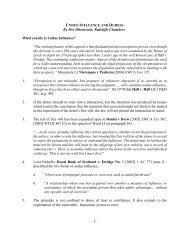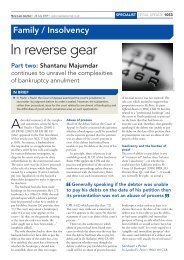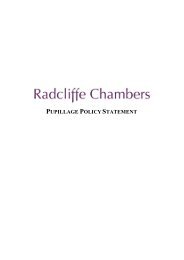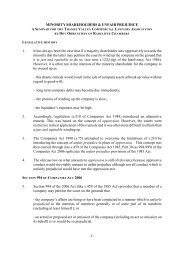Crastvell Trading Limited v Bozel SA - Radcliffe Chambers
Crastvell Trading Limited v Bozel SA - Radcliffe Chambers
Crastvell Trading Limited v Bozel SA - Radcliffe Chambers
You also want an ePaper? Increase the reach of your titles
YUMPU automatically turns print PDFs into web optimized ePapers that Google loves.
10 Secondly, they obtained a freezing order in the BVI, the jurisdiction of<br />
incorporation of Welgate, in which Welgate were restrained from disposing of any<br />
assets save in excess of the value of the claimant’s claim, and also sought an order<br />
for winding up of the company following a statutory demand.<br />
11 That latter order was duly made. It was followed by an application by Welgate to<br />
set that order aside. The grounds for so doing have an echo of the points that are<br />
being made by <strong>Bozel</strong> in the present proceedings, namely to the effect that in some<br />
respect the claimants had taken steps to prevent Welgate from obtaining refinance<br />
or otherwise repaying the loan from some other source. The application to set<br />
aside failed. The court held that there was no cross claim of the kind in fact<br />
intimated in the present proceedings which Welgate wished to pursue.<br />
12 Lastly, in relation to the proceedings in Luxembourg, the claimants sought a<br />
winding up order. That application was dismissed on the grounds that, as I<br />
understand it, the court was not satisfied that the inability to meet the loan<br />
repayments may have been only temporary. All this activity, in my judgment,<br />
supports the proposition that the interest of the claimants is indeed to recover its<br />
money and no more.<br />
13 The defendants say that the reason why the loans have not been repaid is because<br />
the defendants have been unable to refinance the loan. It is submitted that the<br />
reason they have been unable to refinance the loan is because the claimants have<br />
taken every possible step to be obstructive and prevent the defendants from making<br />
a successful agreement with third parties to provide funds, almost all those<br />
potential agreements being on the basis that the third party would purchase the<br />
shares in the <strong>Bozel</strong> group of companies.<br />
14 This immediately raises what seems to me to be an important threshold issue,<br />
namely whether, on the assumption that such a counterclaim is a good claim<br />
(namely that the claimants did indeed conduct itself in that way and secondly that<br />
such conduct was in breach of the loan agreement, and thirdly that the impact of<br />
the conduct was to prevent the refinancing) does the consequential counterclaim<br />
constitute a ground for refusing judgment on the claim? Of course, in this respect,<br />
the claimants rely upon the no set-off clauses (if I may call them that) in the<br />
various loan agreements.<br />
15 The legitimacy of the parties entering into an agreement whereby they separate out<br />
frontline claims on their agreement from cross claims, so that judgment can be<br />
accorded on the claim, leaving the defendant to advance his cross claim in due<br />
course, has received the clearest possible judicial approval in Coca Cola Financial<br />
Corporation v. Finsat (six) [1998] QB 43. Just to cite from the judgment of Neill<br />
LJ at page 52:<br />
BEVERLEY F NUNNERY & CO<br />
OFFICIAL SHORTHAND WRITERS



